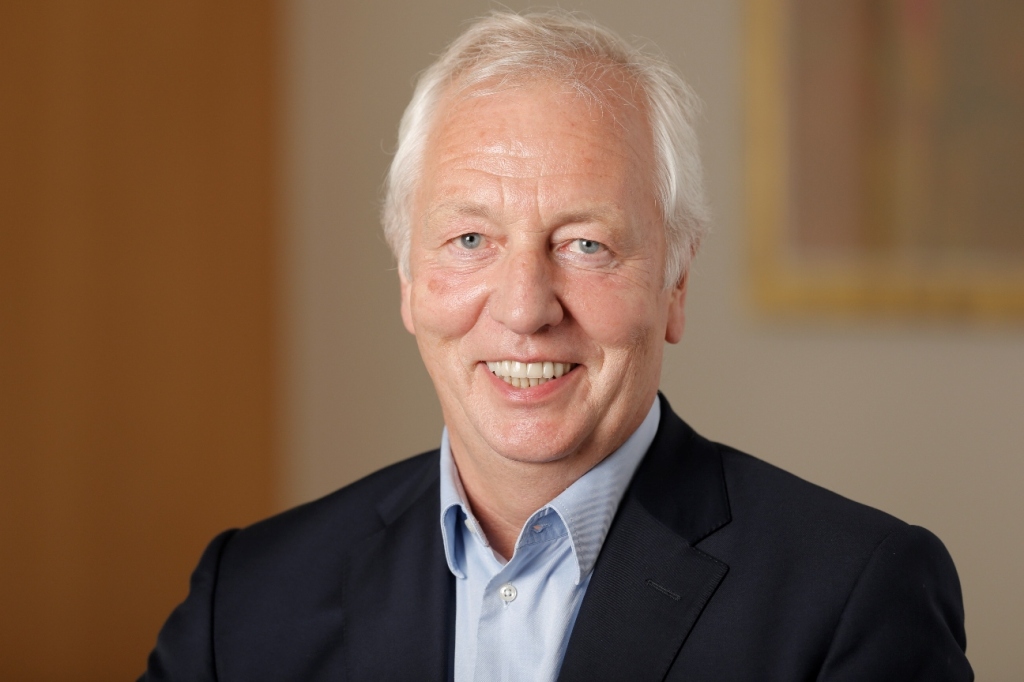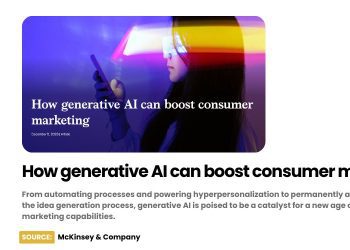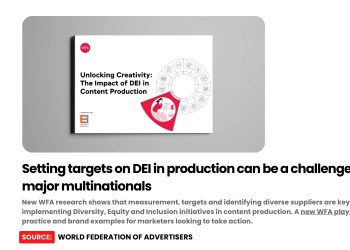Brands need to re-earn trust, focus on the fundamentals of marketing and communications, and combine art and science to truly deliver for their customers, says WFA President and RBS CMO David Wheldon.
What a year we have left behind: much to reflect on, much to learn from and much to forget but, above all, much to look forward to.
We’ve seen the digital revolution continue and its profound impact on the world of marketing. It has shaken the foundations of the business to the core, with many talking up a completely changed approach to communications and marketing.
But here’s the danger: the basics are often ignored and shiny new solutions are reached for without pause for reflection.
In 2017, as we approach Brexit, Europe is introducing new legislation on data privacy. This gives us back control of “our data”, correctly putting the onus on the potential users of this data to be clear, transparent and honest.
But do we all really know what we sign up for when we put in our email addresses to get free Wi-Fi? Or when we agree to something without reading the terms and conditions in the handy pop-up box to save time?
The distrust of digital metrics and the rise of ad-blocking mean all businesses are increasingly focused on the real return on investment and the shift to digital investment will continue to be examined for evidence of impact and effectiveness.
Programmatic models are evolving rapidly. With ad fraud being one of the key problems facing us all, there seems to be too little focus on understanding it and ensuring that it is eradicated. It is easy to forget that ad fraud is currently the second-biggest organised crime in the world, with very few perpetrators being held to account.
Know your customers
Closer to home for me, the era of “open banking” is coming – with customer data being open for all so that the best-value deals are always on offer.
So it’s clear that the old truth remains relevant: companies that know their customers better than anyone else, that always ensure they serve their customers’ needs in the right way by adding value, not subtracting it, will win.
Brand owners need to focus on trust. Brands were built on the trust created through being consistent, reliable and responsible. This enables customers to know they can rely on a brand’s promise being delivered day in, day out.
We need to remind ourselves more than ever that doing business is an act of trust. Indeed, the word “credit” derives from the Latin credo: I believe, I trust.
We may have taken this primary role of brands as “trust marks” for granted. Stretching them to represent attitudes and associations, bending them to represent lifestyles and values. And this was not always done with the anchor of the truth, leading us to over-promise and under-deliver.
My two favourite definitions of “brand” are “A brand is what a brand does” (Arun Sarin, former chief executive of Vodafone, said at the Marketing Society dinner in 2005) and “Brand is what people say about you when you are not in the room” (Jeff Bezos, chief executive of Amazon).
The business I work for, RBS Group, as with most financial services companies, is still recovering from the mistakes it made in the past. So it’s only with an acute focus on our customers – serving them well, doing what we say we are going to do and proactively putting things right when they go wrong – that we’ll rebuild our brands. That’s what my team and I had been focusing on in 2016 and what we’ll continue to do this year.
Lessons for 2017
For 2017, in the age of post-truth politics and a focus on the basics of marketing and communications, the lessons for brands are clear – re-earn trust through truth, focus on the fundamentals and combine the art and science of marketing to deliver for your customers.
As the marketing and communications services sector adapts to these changing times, I hope the core skills of creativity and combining magic and logic to connect brands to their users will continue to be celebrated and valued.
At the World Federation of Advertisers, where our members represent 90% of the world’s marketing investment, we want to continue to champion best practice that has helped the sector thrive and challenge the lack of transparency that sometimes bedevils the sector.
We try to build effective collaboration and intend to celebrate the fact that in 2017, despite the increasing focus on technology, automation and personalisation, marketing and communications will remain fundamentally a people business.
There is no algorithm for creativity, there is no rule book on how to do it better than anyone else. But there are lots of great people who know how to make connections with people – that is what this sector has always been about and will always be about.
The late, great Bill Bernbach said many years ago: “Human nature hasn’t changed for a million years. It won’t even change in the next million years. Only the superficial things have changed. It is fashionable to talk about the changing man. A communicator must be concerned with the unchanging man, with his obsessive desire to survive, to be admired, to succeed, to love, to take care of his own.”
There is no algorithm for creativity, there is no rule book on how to do it better than anyone else. But there are lots of great people who know how to make connections
Today, Bernbach would have said “the unchanging man and woman”, and he might have expanded the thought to include the multichannel world we live in, but I bet he would have maintained the core observation.
I had some great conversations with some great people from the industry in 2016 and they will recognise their input in this essay – thanks to all of them!
So here’s to 2017, then: the year of the unchanging man and woman in an ever-changing world. I am looking forward to it. Have a successful, healthy, happy, people-focused new year.








